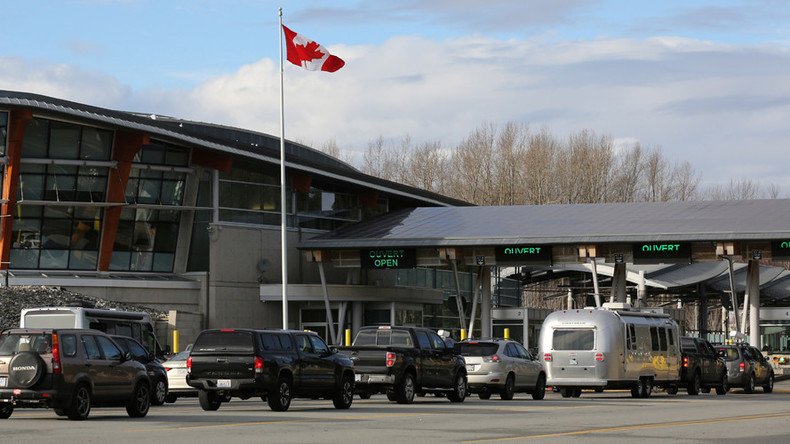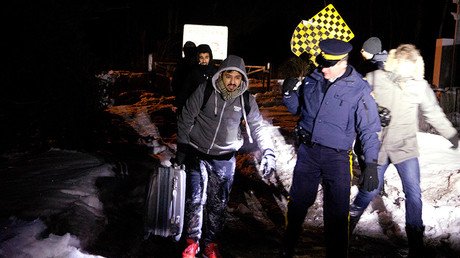US asylum seekers fleeing from Trump to Canada stuck in legal limbo

Anticipating immigration raids, refugees who fear persecution in the United States have fled north to Canada - but they now face possibly even bigger issues as Canada is not able to handle the large influx of immigrants.
The Canadian Border Services Agency has reported that 3,461 people have been picked up by the border by the Royal Mounted Canadian Police between January and May of this year. A woman from Ghana is said to have passed away from hypothermia during her travel across the border, according to KARE.
The Safe Third Country Agreement is being cited as a leading factor behind this immigration trend. The agreement between the US and Canada requires that refugees apply for asylum in the first country they come to, but the agreement does not apply if they cross the border illegally, according to KARE.
According to previously unpublished Immigration and Refugee Board data obtained by Reuters, claims for refugees are taking longer to be completed than at any point in the past five years.
In April, the IRB set aside “up to half” of their 127 tribunal members to focus on old cases. From 2015 to 2016, the number of delayed hearings more than doubled. It is set to increase again this year, Reuters reported.
The refugee system in Canada was having trouble tackling applications before the large influx of people seeking asylum in January. IRB data shows that more than 4,500 hearings have been cancelled in the first four months of this year alone, according to Reuters.
Reuters reported that Mohamed Daud, 36, left his family and a claim in the US to become a refugee in order to come into Canada after word spread about potential immigration raids. Originally from Somalia, Daud had been in Nebraska working and living legally.
He did, however, fear he would be detained by immigration officials at one of his check-ins. Daud had a meeting on May 8 with a Canadian tribunal, but it was cancelled three days prior and he has reportedly not received a new date as of yet.
“I don’t know when they will call me. I can’t work. It isn’t easy,” Daud said. He gets C$600 (US $453) in social assistance from the government while he waits for a work permit. He currently shares a room in an apartment with six others seeking asylum.
Abdi Rahman, 28, an asylum seeker, told KARE from temporary housing in Winnipeg, “I just decided to move to Canada to see if I can get a better place to be.” He continued: “They say they’re going to deport us back, so that’s the reason we don’t want to live there no more. And we don’t have time to go back to Somalia.”
He added that if he returned to his native land, “They’re going to kill me.”
Some of the Canadian response to the uptick in people crossing the border has not been welcoming. Doug Johnston, a firefighter and councilor for the municipality of Emerson-Franklin, a town with a population of 700 close to the border, said: “They have their doors locked, they keep them out and they call the police,” referencing Canadian’s attitudes in relation to the asylum seekers, KARE reported.













